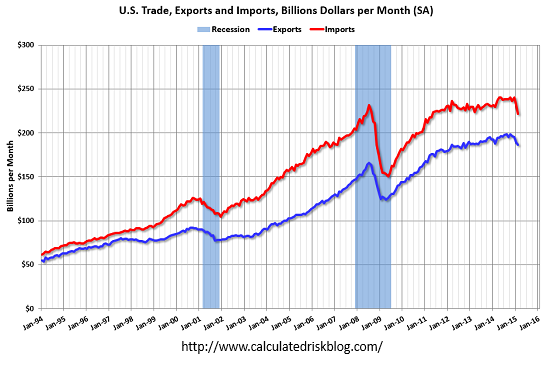Trump, Trade, and Taxes
The best way to restart investment (and thus employment opportunities) is to make the U.S. a magnet for productive capital rather than a graveyard of tax-avoidance strategies.
Donald Trump has made trade agreements a central issue in this presidential election, declaring trade treaties such as the North American Free Trade Agreement (NAFTA) as unfair and subject to cancellation or renegotiation.
Setting aside the issue of whether presidents can cancel trade treaties via executive orders, let’s look at the underlying issue: the erosion of manufacturing and entry-level job opportunities that lead to middle-class security and pay.
The question then becomes: what are the causes of this erosion of manufacturing and the middle class? Trade is relatively easy to finger because the flood of cheap goods into the U.S. coincided with the wholesale offshoring of manufacturing capacity.
Physical Gold & Silver in your IRA. Get the Facts.
But it isn’t quite that simple. “Free” Trade, Jobs and Income Inequality: It’s Not As Easy As We Might Think (March 22, 2016)
There are many other issues in play, including:
1. Currency manipulation, i.e. pegging one’s currency (such as the Chinese RMB) to the US dollar to maintain a predictable cost advantage.
2. Technology, as automation reduces the inputs of human labor per output even in nations with few trade treaties.
3. Global wage arbitrage, as domestic corporations move production overseas to lower labor costs (exacerbated by insanely high costs of healthcare insurance for employees in the U.S.)
4. High tax rates on domestic corporations (35%) push companies overseas to lower tax nations.
5. Trade is grossly miscalculated by current metrics; if we calculate the value that actually flows to each nation that makes parts and software for the iPhone, we find that “Analysts estimate that as little as $10 of the value of every iPhone or iPad actually ends up in the Chinese economy, in the form of income paid directly to Foxconn or other contractors.” Meanwhile, twenty times that sum flows directly to Apple HQ in Cupertino, California for software and profit.
Forget “Free Trade”–Focus on Capital Flows (October 28, 2014)
“In a world dominated by mobile capital, mobile capital is a comparative advantage.”
6. Triffin’s paradox demands that any nation issuing the global reserve currency must run a trade deficit as a means of exporting the reserve currency into the global economy. I know this is counter-intuitive, but I’ve explained it many times over the years:

Why the Shrinking Trade Deficit Will Choke U.S. Corporate Profits (August 8, 2013)
Understanding the “Exorbitant Privilege” of the U.S. Dollar (November 19, 2012)
The Dollar and the Deep State (February 24, 2014)
In other words, if you want the Exorbitant Privilege of issuing the global reserve currency, you have to run a permanent trade deficit.
Let’s look at what any president can influence/control and what is beyond their reach. Presidents can complain about currency manipulation and even threaten reprisals, but currency manipulation is not only a trade issue; it overlaps with diplomatic issues that extend far beyond trade. For example, the U.S. might tolerate some currency pegs to support key allies.
The post Trump, Trade, and Taxes appeared first on LewRockwell.
Leave a Reply